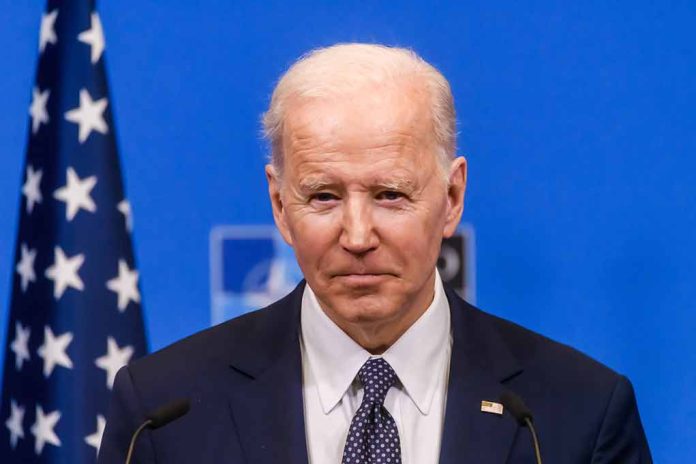
President Biden signs short-term spending bill, averting government shutdown until December amid ongoing disputes.
At a Glance
- Biden signed a short-term spending bill to prevent an immediate government shutdown
- The bill extends funding deadlines to March 8 and March 22
- House and Senate passed the bill with bipartisan support
- Disputes over voter ID requirements and foreign aid remain unresolved
- $230 million in additional funding for Secret Service included
Biden Signs Bipartisan Spending Bill
President Joe Biden signed a short-term spending bill on Thursday, averting an immediate government shutdown and pushing the funding deadline into December. The continuing resolution, which passed both chambers of Congress with strong bipartisan support, ensures that federal agencies will remain operational through the upcoming months.
The House of Representatives approved the measure with a 341-82 vote, while the Senate passed it with a 78-18 margin. This overwhelming support from both parties demonstrates a rare moment of unity in an otherwise contentious political landscape.
President Joe Biden on Thursday signed a temporary government spending bill that keeps agencies operating into December, after Congress punted key spending decisions until after the November election. https://t.co/Ztwpcd3uzq
— 13 Action News (@13abc) September 27, 2024
Funding Priorities and Deadlines
The short-term spending bill extends funding deadlines for various government agencies. Half of the spending bills are now due by March 8, with the remainder extended to March 22. This staggered approach aims to provide more time for lawmakers to negotiate and pass individual appropriations bills rather than resorting to an omnibus package.
“My administration will work with Congress to ensure these bills deliver for America’s national defense, veterans, seniors, children and working families and address urgent needs for the American people, including communities recovering from disasters,” Biden wrote.
The bill includes $230 million in additional funding for the Secret Service, a response to recent security concerns. It also provides $16 billion in emergency disaster assistance and extends authorization for the Federal Aviation Administration through the end of the year.
Unresolved Issues and Future Challenges
Despite the temporary reprieve, several contentious issues remain unresolved. Conservatives have pushed for stricter voter ID requirements, which Democrats argue are attempts to exploit immigration issues ahead of upcoming elections. Additionally, the bill does not address military assistance or aid to Israel, Taiwan, and Ukraine, leaving these matters for future negotiations.
“We cannot under any circumstances allow American support for Ukraine to be interrupted,” Biden said in a statement. “I fully expect the Speaker will keep his commitment to the people of Ukraine and secure passage of the support needed to help Ukraine at this critical moment.”
House Speaker Mike Johnson faces criticism from some conservatives for not securing significant spending cuts in the deal. However, he argues that the agreement allows for individual bills rather than an omnibus package, which he describes as containing “only what’s absolutely necessary.”
President Biden signs a stopgap bill funding the government until December, averting a shutdown before the November election. https://t.co/mnf5xf7C6V
— The Associated Press (@AP) September 26, 2024
Looking Ahead
As the new funding deadlines approach, Congress will need to work diligently to pass full-year appropriations bills. The short-term measure provides temporary stability, but the underlying disputes over spending levels, policy riders, and foreign aid remain unresolved. Both parties will need to find common ground to avoid another potential shutdown crisis in the coming months.
“Last night, Congress passed a bill preventing a damaging shutdown and allowing more time to work on full-year funding bills. That’s good news for the American people, but I want to be clear: This is a short-term fix,” Biden said in a social media post Friday.
As the nation moves forward, all eyes will be on Congress to see if they can overcome partisan divides and fulfill their constitutional duty to fund the government responsibly and efficiently.
Sources:
- Biden Signs Stopgap Spending Measure to Keep Government Open
- Congress passes spending stopgap, averting a shutdown hours before midnight deadline
- Biden signs short-term funding bill, averting a government shutdown
- President Biden signs temporary funding bill that avoids a shutdown before the election
- Biden Signs Short-Term Spending Plan to Avert Government Shutdown
- Congress passes 3-month funding extension to avoid government shutdown









